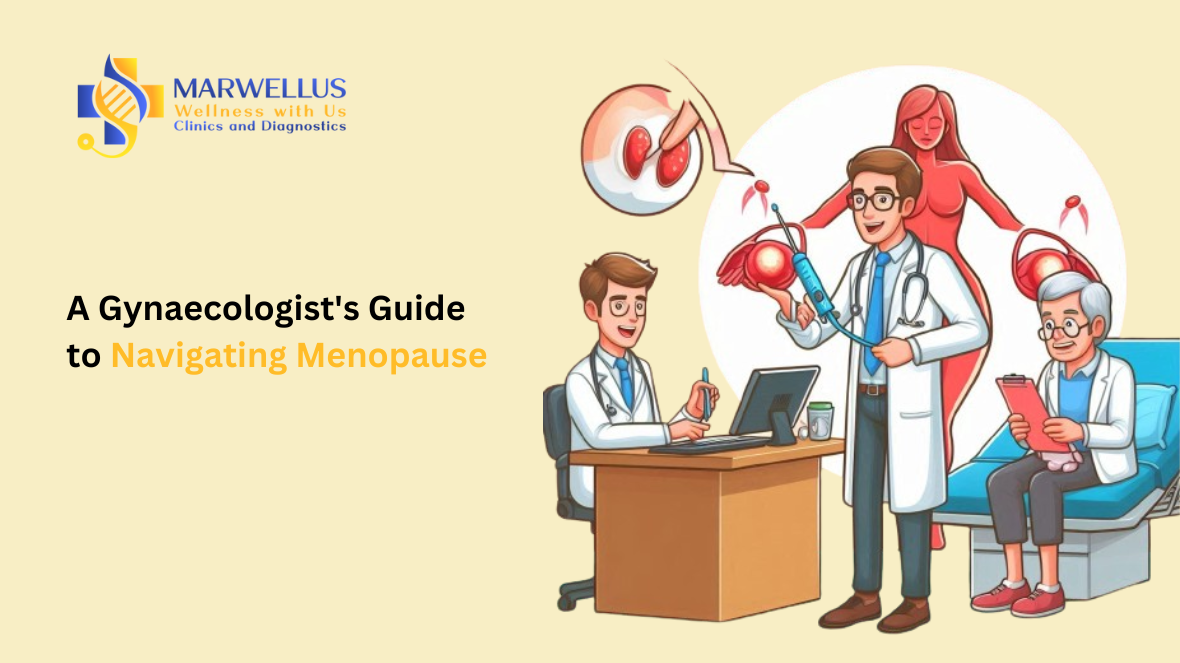



Menopause is an influential transition in a woman’s life, typically occurring between the ages of 45 and 55. This natural phase, characterised by the end of menstrual cycles, is not a disease but a normal part of ageing. According to a study, the average age of menopause of an Indian woman is 46.2 years, much less than that of their Western counterparts (51 years).
Understanding menopause and its symptoms early can significantly enhance a woman's experience during this period. Open communication with a gynaecologist is crucial for smoothly steering through this transition and maintaining overall health. This blog will help you understand menopause and guide you on how to deal with hormonal changes during this period of your life.
Menopause is driven by hormonal changes, primarily the decline of oestrogen and progesterone. These hormonal shifts can lead to various physical symptoms, the most common being hot flashes, night sweats, and vaginal dryness. Many women also experience emotional and psychological changes, such as mood swings, anxiety, and sleep disturbances. These symptoms can and may differ in intensity and duration, making it essential to recognise and address them with the guidance of a gynaecologist.
Lifestyle modifications can play a prominent role in alleviating menopause symptoms. A balanced diet, regular exercise, and effective stress management techniques can help manage hot flashes and improve overall well-being.
If lifestyle changes aren't enough, hormone replacement therapy (HRT) can be a viable option. Additionally, there are various hormone replacement therapy (HRT) options available. HRT can effectively relieve symptoms by replenishing declining hormone levels, but it is crucial to address common concerns and myths surrounding HRT with a gynaecologist. Individualised treatment plans are essential, as the benefits and risks of HRT can vary based on personal health profiles.
Maintaining long-term health becomes paramount after menopause. Bone health screenings and preventative measures are crucial, as the risk of osteoporosis grows due to reduced oestrogen levels. Additionally, there is a heightened risk of certain health conditions, such as heart disease. Regular gynaecological checkups are essential to monitor and manage these risks, ensuring continued well-being through tailored health strategies.
Menopause is a natural and crucial phase in a woman’s life. Open communication with a gynaecologist is vital to address any concerns and effective menopause management. For additional information on managing menopause, numerous resources are available to support women in making informed health decisions. By staying informed and proactive, women can confidently navigate menopause and maintain their quality of life.
Are you experiencing challenging symptoms of menopause and unsure how to manage them effectively? Menopause can bring a wave of unexpected changes. At Marwellus Clinic, we specialise in comprehensive menopause care. From lifestyle modifications to hormone replacement therapy, our experienced gynaecologists are here to guide you every step of the way. Schedule a consultation today and take the first step towards a smoother, healthier transition through menopause with Marwellus Clinic.